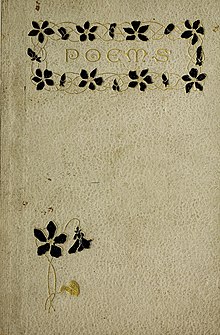Not just as an author and poet, but Frances Ellen Watkins Harper was an activist too. She was an influential abolitionist, suffragist, and reformer and she also co-founded the National Association of Colored Women’s Clubs. To her credit is being the first African American woman to publish a short story.

Born on September 24, 1825 in Baltimore, Maryland, Frances was brought up by her aunt and uncle, Henrietta and William Watkins. It was a strong influence from her uncle which infused in her a zeal to be anything but an ordinary woman. William Watkins was an outspoken abolitionist, advocated self-taught medicine, organised a black literary society and established his own school in 1820.
Later in her youth, Frances was very attracted to books, literary articles and education. That's why at the young age of twenty-one, she wrote her first small volume of poetry called Forest Leaves. At twenty-six years old, she became the first woman instructor at Union Seminary, a school for free African Americans in Ohio. Later in Philadelphia in 1854, she had compiled her second small volume of poetry called Poems on Miscellaneous Subjects.
In 1859, Harper published a short story in the Anglo-African Magazine called “The Two Offers.” This short story about women’s education became the first short story published by an African American woman.
In 1860 she got married, but her husband died a few years later. Not one to be tied down to domestic life, Frnaces travelled across the country, touring places, lecturing and showing emphasis on education as well as fighting for the rights of black people.
Known throughout her lifetime and even after her life as ‘The Bronze Muse,’ , she died on February 22, 1911 in Philadelphia, Pennsylvania.
My Mother's Kiss by Frances Ellen Watkins Harper
William Still, in his 1871 publication The Underground Railroad, called his colleague and friend Frances Ellen Watkins Harper, "the leading colored poet in the United States”.
The poem My Mother's Kiss is about a very tender relationship shared by a mother with her child. In another poem by Harper,n “The Slave Mother,” a work from her first volume of poetry, Poems on Miscellaneous Subjects (1854), a very tough bond is explored. The latter poem might have been written at a difficult time both in Harper’s life or in the civil unrest in America plagued by racism.
According to Sarah Elizabeth Bennison, in her paper ‘The Poetry and Activism of Frances Ellen Watkins’, Harper used the image of motherhood throughout her poetry to portray black women generally in a favorable light and specifically to reflect her self-conception as a mother who was also a poet.
My mother's kiss, my mother's kiss,
I feel its impress now;
As in the bright and happy days
She pressed it on my brow.
The poem explores the viewpoint of a child about her relationship with her mother. Mother here is a delicate lady, one who has capably managed her house and her children. The poem goes through several stages of the daughter’s life as well.




No comments:
Post a Comment